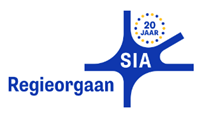
project information
Full title: | H2-MODUS |
Funding/Programme | RAAK-MKB
|
Duration | 2023-2025 |
Partners | HAN University of Applied Sciences, Burgaflex B.V., DENS Power B.V., Electric Special Technics (E.S.T.) B.V., Genmark B.V., H2Storage B.V., H2Trac B.V., Handelsonderneming PD B.V., Hydrogen Range Extender Trailer, Hymatters Research & Consultancy B.V., HyMove B.V., Hyster-Yale Nederland B.V., J.H. Laarakkers B.V., Nederland Sales & Service B.V., Nederlandse Waterstof en Brandstofcellen Associatie (NWBA), NedStack fuel cell technology B.V., Nuvera Fuel Cells, QConcepts Design & Engineering B.V., ROGER Eneregy b.v., ROM B.V., Saxion, Stichting Kiemt, Twinning Energy B.V., Volta Energy B.V., Wychstrach GmbH / Hexagon Purus, zepp.solutions B.V. |
project description
Manufacturers of mobile machines such as sewer cleaners, excavators and generators have difficulty making their products more sustainable. Relatively high capacities and long operating times, in combination with limited access to electrical infrastructure at the location of use, make battery-electric solutions less suitable. Dutch manufacturers of mobile machines are therefore looking at hydrogen. Energy carrier hydrogen, produced from a sustainable source, offers the possibility of achieving greater power for a longer period of zero-emission through a fuel cell system on the machine and electrification of the drivetrain.
Large manufacturers of, for example, passenger cars or trucks are perfectly capable of acquiring the necessary knowledge themselves and developing such a fuel cell hybrid drivetrain in a few generations into a commercial product, fully optimized for their own application. However, mobile machines have smaller production runs and therefore also smaller manufacturers, often SMEs, with modest capabilities. They can gain development power from collaboration with similar companies with other applications.
A result of such a collaboration, for example, is software to size fuel cell hybrid powertrains based on energy demand patterns of the specific application. Although the application is different, the generic dimensioning software can be easily shared. Hardware designs can also be shared at module level to accelerate the realization of the first fuel cell hybrid powertrain.
The consortium of 25 partners, including 16 SME companies and knowledge institutions therefore strives to make such knowledge and tools available to the participating parties. The goal of H2-MODUS is to work on the following themes: dimensioning, availability of components, control and energy management, safety and permits, the logistics of getting hydrogen to your own application and the final costs.
The aim of the consortium is to develop prototypes within the two-year project, so that project results can be validated and a first quantifiable emission reduction is achieved within the duration of the project. In this project we contribute to the following tasks:
· Determining the energy and power requirements of an application involves thorough analysis of the operational parameters and expected performance criteria. This assessment typically involves evaluating factors such as operating conditions, load profiles, and duty cycles to ascertain the energy demands over time.
· Sizing the main components involves selecting components such as energy storage systems, power converters, and control units based on the determined energy and power requirements. This process requires consideration of factors such as efficiency, reliability, and compatibility with the overall system architecture.
· Identifying available components or subsystems entails researching and evaluating existing technologies, products, and solutions in the market. This involves assessing factors such as performance specifications, cost-effectiveness, and compatibility with the application's requirements.
· Generalization and modular construction methodologies can aid in streamlining the design and development process. By standardizing components and subsystems, and adopting modular design principles, scalability, flexibility, and ease of maintenance can be achieved.

